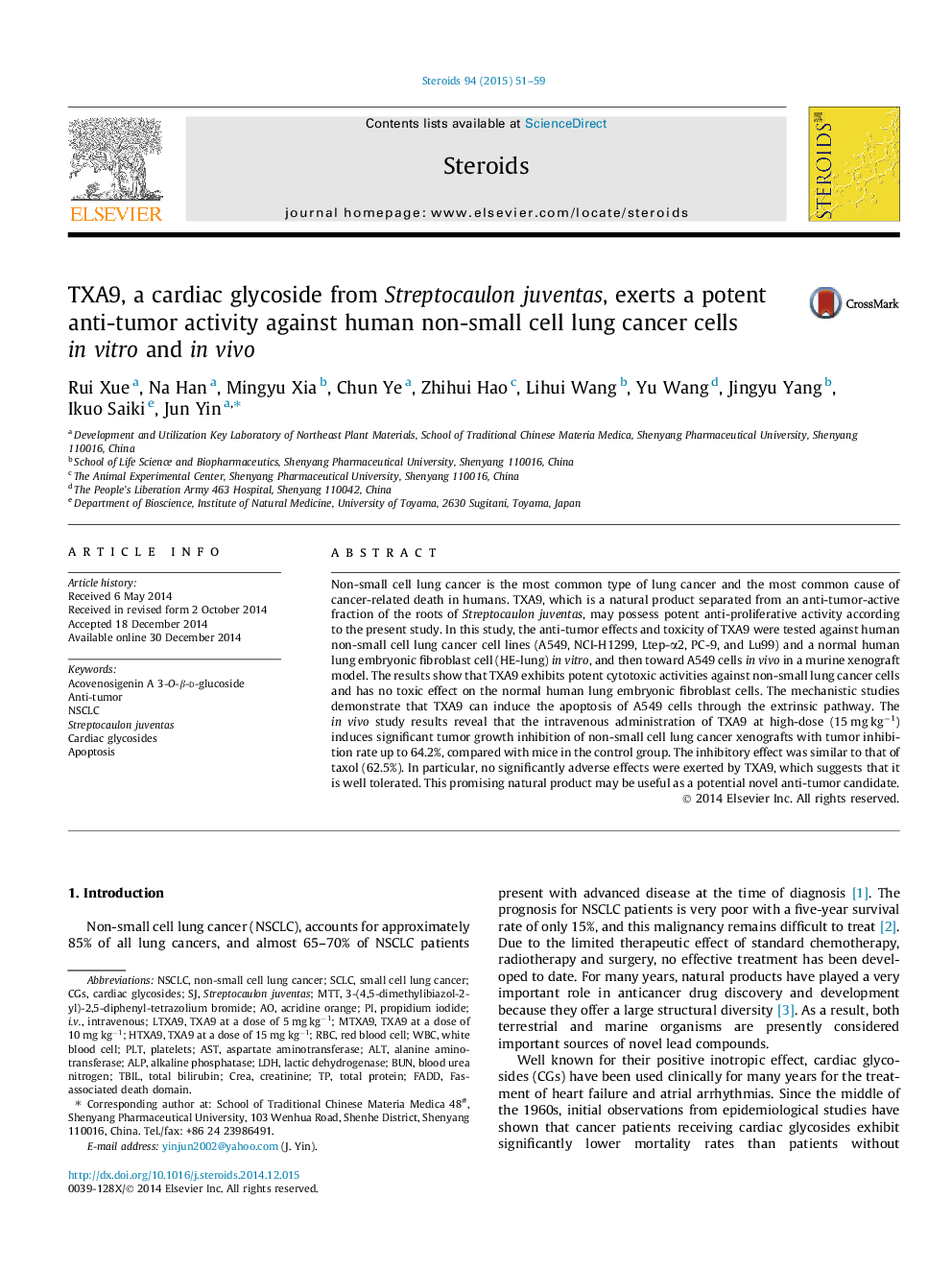| Article ID | Journal | Published Year | Pages | File Type |
|---|---|---|---|---|
| 2027859 | Steroids | 2015 | 9 Pages |
•TXA9 is a natural product separated from Streptocaulon juventas.•TXA9 exhibited selective anti-tumor activity against NSCLC cell lines in vitro.•TXA9 showed significant tumor growth inhibition in vivo and was well tolerated.•TXA9 induced the apoptosis of A549 cells through the extrinsic pathway.
Non-small cell lung cancer is the most common type of lung cancer and the most common cause of cancer-related death in humans. TXA9, which is a natural product separated from an anti-tumor-active fraction of the roots of Streptocaulon juventas, may possess potent anti-proliferative activity according to the present study. In this study, the anti-tumor effects and toxicity of TXA9 were tested against human non-small cell lung cancer cell lines (A549, NCI-H1299, Ltep-α2, PC-9, and Lu99) and a normal human lung embryonic fibroblast cell (HE-lung) in vitro, and then toward A549 cells in vivo in a murine xenograft model. The results show that TXA9 exhibits potent cytotoxic activities against non-small lung cancer cells and has no toxic effect on the normal human lung embryonic fibroblast cells. The mechanistic studies demonstrate that TXA9 can induce the apoptosis of A549 cells through the extrinsic pathway. The in vivo study results reveal that the intravenous administration of TXA9 at high-dose (15 mg kg−1) induces significant tumor growth inhibition of non-small cell lung cancer xenografts with tumor inhibition rate up to 64.2%, compared with mice in the control group. The inhibitory effect was similar to that of taxol (62.5%). In particular, no significantly adverse effects were exerted by TXA9, which suggests that it is well tolerated. This promising natural product may be useful as a potential novel anti-tumor candidate.
Graphical abstractFigure optionsDownload full-size imageDownload as PowerPoint slide
